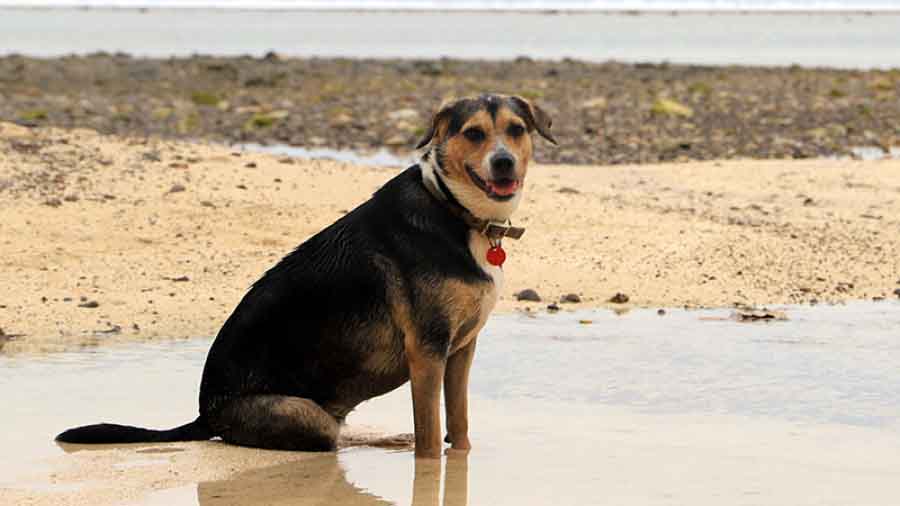
Dog enjoys a day at the beach. Image/SUPPLIED
It is a beautiful day, and you are having a party, lots of people, noise, and lots of excitement. You are having a great time, sharing food and drink with friends and family.
Your dog, let’s call him Rover, is also having a great time, running around chasing the other dogs, balls, and children. Rover is less interested in the food and drink, there is too much else happening. He is quite happy just running around in the sun.
After four hours the party is settling down, less excitement but still everyone is having a good time. Except for Rover. He is suddenly quite wobbly, panting and seems anxious. His muscles are trembling. He is breathing very rapidly and then he vomits. Why? What has happened, has he eaten something? Now he has diarrhoea. What has happened?
Rover has heat stroke. It is not something he ate, rather that he has done lots of exercise with no rest and no water. His muscles generated heat and by not drinking he removed his body’s ability to cope with the heat. Now his internal temperature has risen to well above normal. His brain, lungs, heart, and kidneys are all cooking. His muscles are shaking because of the heat, but that just makes more heat. He is panting to try to get rid of the heat, but without water he has no saliva, so panting does not cool him down. In fact, the effort to pant generates more heat. Now he is falling over. What can you do?
Rover needs to be cooled down, and as soon as possible and you can start that process. Putting him in a pool or bath of water is a great start, but if you can’t manage that spraying him with the hose is a good alternative. Then call Te Are Manu.
As you have begun Rover’s treatment, the vet can continue with the next steps. Those are, keeping Rover cool and rehydrating him. This usually involves a drip and fluids going into the vein, sometimes the vet may need to put icepacks or alcohol on Rover to keep him cool. Then the vet will deal with any damage the high temperature has caused to Rover’s organs. If Rover was only hot for a short period at a lowish-but still-high temperature rehydration may be all that is needed. But a high temperature for a longer time is serious. Brain swelling, heart attacks, seizures and permanent organ failure are possible. So, get Rover cooled down.
Unfortunately, now Rover has had heat stroke once, he is more likely to get it again. Other things that increase his likelihood of heatstroke are obesity, lack of fitness and a very thick coat in hot weather. And being shut in rooms or cars that do not have any open windows for ventilation. And not having access to water.
Rover may be too excited to avoid heat stroke himself, but if you know how to stop it, what it looks like and what to do if he has it, he stands a much better chance.














































